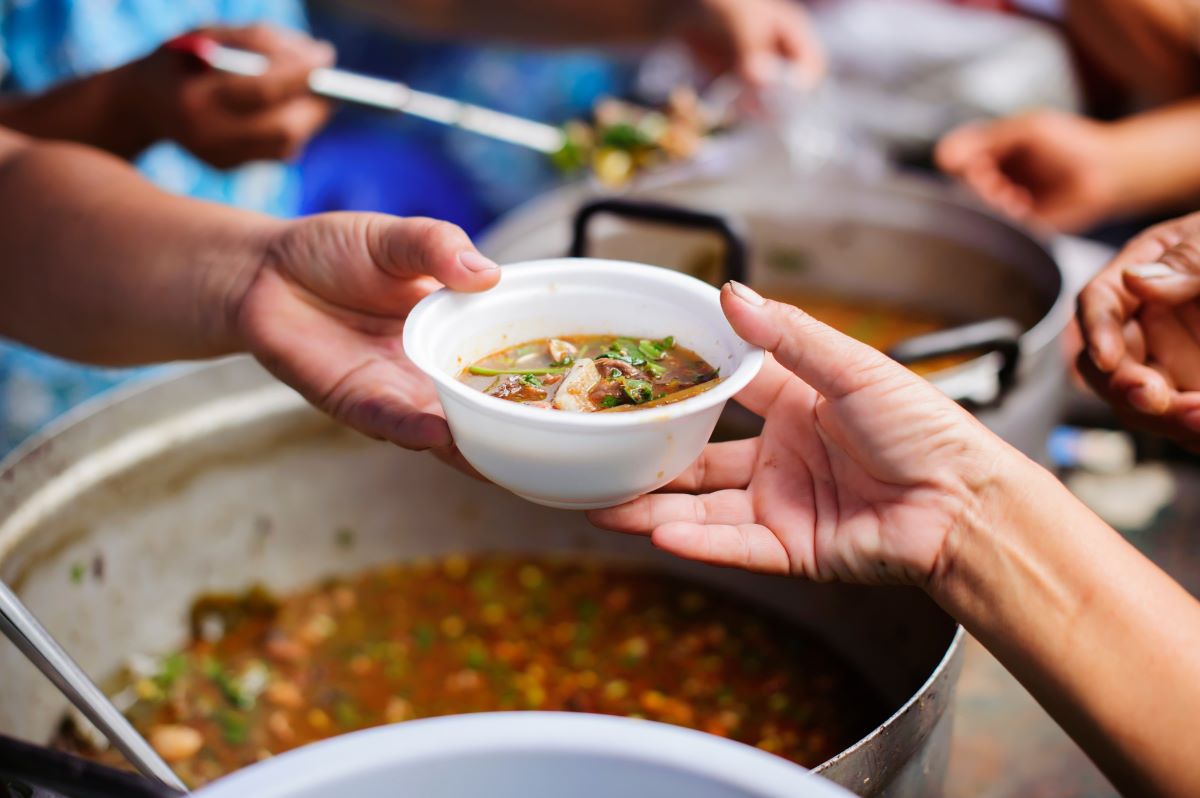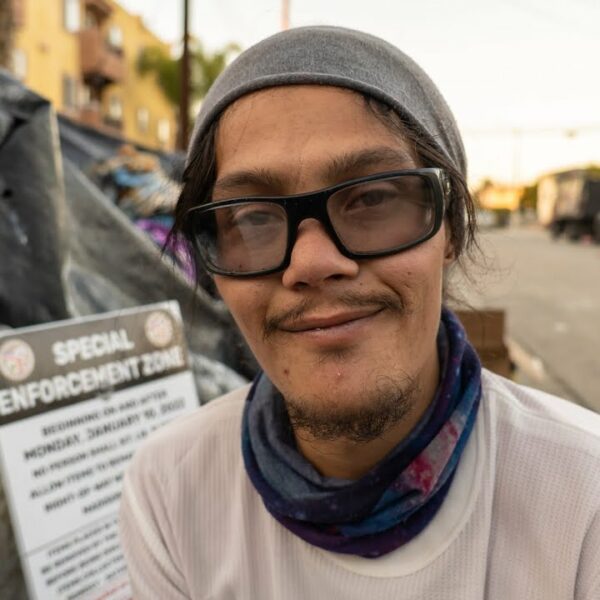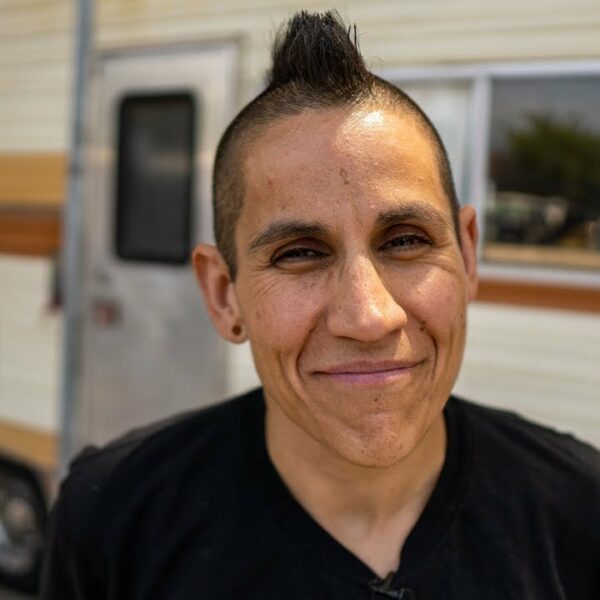When Helping Becomes a Crime: The Fight Against Anti-Homeless Laws
If you’ve ever wondered where your next meal will come from, you’d understand the relief of a hot meal.
When I was finally housed again, one of the first things I did was fill up my cupboards with bags of dried beans, dried milk, rice, oats, and pasta. I remember my first big trip to the grocery store and how carrying all those grocery bags onto my kitchen table felt. It looked like salvation. I felt safe knowing I wouldn’t worry or think about food. I knew it was accessible in my kitchen when I got hungry.
When I entered the shelter processing center in Queens, NY, the staff warned me that many residents in the neighborhood did not want us there. They suggested I come in and out of the shelter quickly, and it was best if I was not identified as homeless.
I also couldn’t imagine sitting inside a shelter all day, alone, with nothing to do. There was no Wi-Fi, after all. So, I was often out and about – mostly at the local Starbucks with my laptop.
One evening, on my way back to the shelter, I saw hot meals being served on the sidewalk down the street. The line was long, but it smelled amazing. They had large pans of biryani, one of my favorite rice dishes. It was so fragrant, my nose led me to the back of the line.
Apparently, this area of Queens was once quite an affluent neighborhood. But with the available services and transportation, it had become a hub for addressing the many issues that homeless people face.
Many homeless people, families, and youth were being processed in a facility on the block. Catholic Charities was just around the corner, providing a soup kitchen, free medical and mental health care, and even various classes, and it was only a few blocks from the A train.
As I stood in line waiting for food, across the street were NIMBY (Not-In-My-Backyard) protesters. They were very loudly chanting with their signs.
I couldn’t imagine what these people were thinking. Across the street stood folks experiencing probably one the worst days of their lives. They were starving, desperate for warm food and shelter, and all these protestors could think of was, “Go away – you’re ugly to look at – you’re ruining our neighborhood with your presence.”
Yes, it hurt. And I’m sure there’s a lot more to it but don’t make homeless people your enemy. Don’t wage war, weaponize hunger, and criminalize the Samaritan.
The thing is, people need to see this. People who are hungry, homeless, and vulnerable can’t fight back. When their existence becomes illegal, how can they protect and defend themselves?
The City of Houston has recently cited 40 volunteers with the Houston chapter of Foods Not Bombs. Due to the citations, their organization owes $23,500 in fines to the city for simply feeding homeless people.
The city’s attorney, Arturo Mcnele, argues that “it is a health and safety issue for the protection of Houston’s residents. There have been complaints and incidents regarding the congregation of the homeless around the library.”
This was very upsetting to see, considering that many homeless people do spend time in public libraries, which is their right, as it is a public service to all within the community.
Congregating in a public space isn’t a crime. Public spaces are meant for such activities. For many homeless people, libraries are a source of refuge, shelter, and a place where they can access computers, charge their phones, and use a bathroom.
Brian, a homeless veteran in Las Vegas, shares with us how his city has made almost anything having to do with being homeless illegal.
In Las Vegas, you could be fined $1,000 or up to 6 months in jail for simply sitting down, lying down, or panhandling. The city has also made food and clothing distribution illegal.
What kind of message does that send to other Las Vegas residents?
To outlaw the existence of homeless people is to exaggerate the already negative stereotypes attached to them. It is to make their lives a moral debate, suggesting that simply being poor and homeless makes you a bad person.
All of these actions further criminalize homelessness, which inevitably makes the lives of homeless people that much more dangerous. This means less access to food, for example. It means less access to shelters. And it doesn’t just end there.
Invisible People reports on the Criminalization of Homelessness, and what we’ve learned is that:
“Many communities have laws that criminalize activities homeless people need to do in public to survive, including:
- Sitting or lying down
- Loitering or loafing
- Eating or sharing food
- Asking for money or panhandling
- Sleeping in cars and outside or camping
The cost of criminalizing homelessness is high. Anti-homeless legislation results in homeless people being arrested or fined, which makes it harder to find housing and jobs and access social services. Criminalizing homelessness does not solve homelessness and violates human rights.”
This kind of negative messaging has a ripple effect. What starts with “homeless people don’t deserve food and shelter” turns into “poor people don’t deserve affordable housing.” Then, fewer housing developments are constructed when there is already a shortage – it’s the primary cause of homelessness!
Criminalizing homelessness will not solve homelessness. Erecting laws that will only cause further harm to the homeless community will do nothing but exaggerate an already pressing issue.
I hope this will inspire the homeless community and its supporters to push back on these unjust laws. Let’s make an even bigger effort to help homeless people through feeding, supporting, and advocating. Let’s show everyone that caring about our homeless neighbors is a good thing and the right thing. Approaching the homeless community with love and compassion is the first step and the only way to solve the issues of homelessness.













